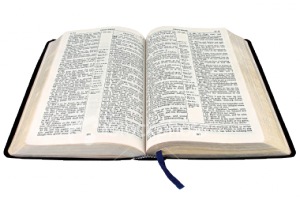 O’Connell goes on to cite other changes of mind, like the son who at first refused to do what his father wanted but then changed his mind (Matt 21:28-32). Matthew himself was doing nicely as a tax-collector until he changed his mind when Jesus spoke to him. Luke gives us a dramatic mind-changing story of two men despairing of the dead Messiah and going off home to Emmaus. “Their eyes were opened” and they did an about turn and hurried back to Jerusalem (24:31).
O’Connell goes on to cite other changes of mind, like the son who at first refused to do what his father wanted but then changed his mind (Matt 21:28-32). Matthew himself was doing nicely as a tax-collector until he changed his mind when Jesus spoke to him. Luke gives us a dramatic mind-changing story of two men despairing of the dead Messiah and going off home to Emmaus. “Their eyes were opened” and they did an about turn and hurried back to Jerusalem (24:31).
“I’ve changed my mind” is easily said but it rarely comes without an interior struggle.
Matthew describes it as a dream where Joseph’s dilemmas is resolved. Matthew teaches us about interiority; when you give alms or fast or pray – do it in secret and “your Father, who know what you do in secret, will reward you.”
Somehow we have the idea that to change your mind is a sign of weakness – particularly in public men. But that makes no sense. Mahatma Ghandi was once chided by one of his followers for saying one thing one day and something else the next. He was not the slightest put out: “I changed my mind,” he said. The opening words of Jesus in Mark – his proclamation of his agenda – were; “The time is fulfilled and the kingdom of God is close at hand. Change your way of thinking and believe the good news!” (1:15).
To change our minds – or to be open to doing so – requires us to go to the heart of the matter.
What really is the issue? What do I want from it? Is it really necessary to fight over this thing? What values am I living out of? These are not questions people, deep in conflict, take time to ask themselves. Yet, if we do not go deeper we will never find the point at which my opponent and I converge. This deepening is going on between churches today and, in some places, between people in violent conflict with each other. Marriage “encounter” and other counselling methods aim to reach this point. There are still people, for instance, in denial about climate change as there are about many other burning issues. The Easter journey to Emmaus stands as a symbol of what we are called to.
30 April 2017 Easter Sunday 3 A
Acts 2:14, 22-33 1 Peter 1:17-21 Luke 24:13-35
Post published in: Faith

